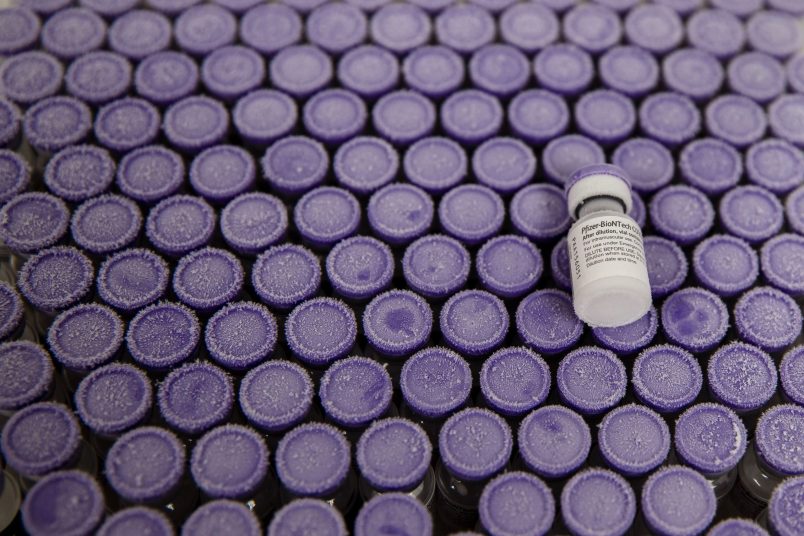A central mystery of the Delta variant in recent weeks hasn’t just been limited data but also wildly inconsistent data. The Israeli health ministry has been placing vaccine efficacy somewhere near 40% against infection – vastly lower than the original clinical trials and much lower than other current measurements. But a slew of Israeli public health experts have challenged those tabulations. A UK study in that went through May and was published in The New England Journal of Medicine on July 21st placed efficacy against the Delta variant at 88%, only slightly less than against the Alpha variant. But yesterday another UK study was released by the Imperial College London which showed substantially reduced efficacy against infection – though apparently not hospitalization and disease.
This study puts vaccine efficacy against all infection at 49% and against symptomatic infection at 59%.
As Dr. Katelyn Jetelina notes here, those numbers start to bring the different data points much closer into alignment. (It’s important to remember that the UK mostly uses the Astra-Zeneca vaccine. So that puts a major additional variable in the equation. But Israel uses Pfizer, which is dominant in the US. And their numbers are low too.)
This new study used a surveillance-type methodology. They recruited about 100,000 participants, tested all of them and then crunched the numbers of discovered infections based on self-reported vaccination status. In other words, this isn’t tests of people presenting themselves for testing either because they’ve been exposed or feel sick. It may not be perfectly random. But it’s meant to be largely randomized. So it’s more likely to pick up asymptomatic or mildly symptomatic cases. With efficacy not much over 50% the situation in Provincetown starts to make a fair amount of sense.
At the same time though efficacy against hospitalization and disease still seems to remain robust, at close to the same levels as the original clinical trials. That’s obviously great news if you’re main interest is not dying from COVID. But there are a couple points I want to highlight here.
First, it’s intuitive to think that vaccine efficacy is diminishing across the board but that still means it gives you a big advantage in terms of severe illness. But if I’m understanding the data that’s not quite what’s happening. Rather efficacy against infection seems to be decoupling from efficacy against hospitalization and death.
Second, there may be a specific clinical explanation for this uncoupling. I’m going to speak very generally since I’m no expert in this area. But reading over the discussion among epidemiologists and virologists they have increasingly focused on the different layers of the immune system, specifically the layers ‘underneath’ the front line antibodies defense. The scenario that increasingly gets discussed is one in which COVID colonizes the upper respiratory tract, especially the nose but basically gets stopped there. The immune system knocks it out before getting to the lungs and other organs. So it may not simply be that it gives you significant but not complete protection in general. There may be different layers of the immune system working those different key metrics. These ‘deeper’ parts of the immune arsenal may also be longer-lasting than more short-lived antibodies.
Third, this raises another topic of discussion which is what actually constitutes an infection, both clinically and as a definition that informs public health policy. Is a breakthrough infection that gets stopped in your nose and causes only mild symptoms a ‘failure’ or is that the vaccine working?
For now it simply seems more clear that efficacy against mild infections is significantly reduced against the Delta variant.
Late Update: Let me mention one additional point courtesy of one of the biologists I follow, Carl Bergstrom. When we talk about vaccine efficacy we’re usually measuring the relative infection rates between the vaccinated and the unvaccinated. When we see the differential becoming smaller we assume the vaccine is becoming less effective. That is probably most of what we’re seeing in the discussion above. But the unvaccinated are themselves a moving target since so many of them are getting sick and developing some level of natural immunity. What that means is that the differential in infections can get smaller even if the vaccine is providing the same level of protection.






